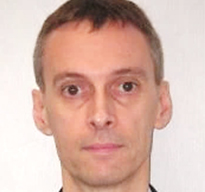Practical Application of PRMS (Petroleum Resources Management System)
Disciplines: Management | Reservoir
Course Description
This course provides a detailed review of the estimation, classification, and reporting of reserves and resources including an in-depth review of the framework, classifications, and categorization of volumes contained in the 2018 SPE Petroleum Resources Management System (PRMS). The focus of the course is on the PRMS, but other systems such as the US Securities and Exchange Commission (SEC) regulations are also included. The course will discuss the key definitions of each of the main classes and categories of reserves and resources.
The course is illustrated by a series of case histories, examples and exercises that show the practical application of the principles.
Topics:
- An overview and in-depth look at PRMS
- Defining the project and evaluating risk and uncertainty
- Incremental projects and unconventional resources
- Entitlement and recognition
- Review of resource assessment methods
- The resource management processes
- Illustrative examples and case histories
At the end of this course, participants should understand:
- International industry practices for reserves and resources estimation especially PRMS, and also SEC
- Key definitions and guidelines and the relationship between reserves and resources
- Handling of risk and uncertainty, including deterministic and probabilistic methodologies
Learning Level
Intermediate
Course Length
2 Days
Why Attend
PRMS is a powerful management tool that is widely used in the industry. If your job includes any aspect of resources management, this course will enhance your skills.
Who Attends
This course is for anyone who works closely with the generating and reporting of reserves, and for those who make or use resources estimates for business decisions.
CEUs
1.6 CEUs (Continuing Education Units) are awarded for this 2-day course.
Cancellation Policy
All cancellations must be received no later than 14 days prior to the course start date. Cancellations made after the 14-day window will not be refunded. Refunds will not be given due to no show situations.
Training sessions attached to SPE conferences and workshops follow the cancellation policies stated on the event information page. Please check that page for specific cancellation information.
SPE reserves the right to cancel or re-schedule courses at will. Notification of changes will be made as quickly as possible; please keep this in mind when arranging travel, as SPE is not responsible for any fees charged for cancelling or changing travel arrangements.
We reserve the right to substitute course instructors as necessary.
Instructors
 Rawdon Seager is a reservoir engineer with over 49 years of experience in the international oil and gas arena and has carried out numerous field studies, reserves assessments, and asset evaluations. Throughout his career, Rawdon has been deeply involved with the proper evaluation and reporting of oil and gas reserves and resources using the Petroleum Resources management System (PRMS) and other standards, a subject on which he provides clients with advice and training. His current focus is on the application of the SRMS to carbon capture and storage (CCS) projects and in assessing the impact of carbon pricing on the estimation of reserves. He has worked on several projects that involve an assessment of storage capacity and is using that understanding and current experience to offer training on the proper interpretation of the SRMS. He is based in Houston, Gaffney, Cline & Associates’ western hemisphere headquarters, where he is Chief Reservoir Engineer as well as Global Director of Quality Assurance.
Rawdon Seager is a reservoir engineer with over 49 years of experience in the international oil and gas arena and has carried out numerous field studies, reserves assessments, and asset evaluations. Throughout his career, Rawdon has been deeply involved with the proper evaluation and reporting of oil and gas reserves and resources using the Petroleum Resources management System (PRMS) and other standards, a subject on which he provides clients with advice and training. His current focus is on the application of the SRMS to carbon capture and storage (CCS) projects and in assessing the impact of carbon pricing on the estimation of reserves. He has worked on several projects that involve an assessment of storage capacity and is using that understanding and current experience to offer training on the proper interpretation of the SRMS. He is based in Houston, Gaffney, Cline & Associates’ western hemisphere headquarters, where he is Chief Reservoir Engineer as well as Global Director of Quality Assurance.

Douglas Peacock has 40 years of experience in the oil industry covering a variety of geoscience positions. He has been involved in exploration, development and reserves estimation throughout his career. Currently, he is Technical Director – Geoscience based in GaffneyCline’s Singapore office. He is a recent (2013-16) member of the SPE Oil and Gas Reserves Committee (OGRC) and was an SPE Distinguished Lecturer during 2010-11.
Doug has worked on several CCS projects and SRMS assessments, including the first reported classification of Storage resources under the SRMS. He has given several training courses for CCS and SRMS, including for SPE.
 Shane Hattingh is a reservoir engineer with 36 years working experience and is currently a Technical Director at Gaffney, Cline and Associates, UK. He conducts and oversees oil and gas Reserves and Resources audits and evaluations and has been responsible for many integrated subsurface studies. Shane has degrees in geology, geophysics and solar-terrestrial physics and PhD in applied mathematics using finite elements to model gas flow in tight fractured reservoirs. He is a member of the SPEE Reserves Definitions Committee and has been a member of the SPEE board of directors from 2020 to 2022. He is a United Kingdom Chartered Scientist, Fellow of the Energy Institute, member of the Institute of Materials, Minerals and Mining and member of the Society of Petroleum Engineers. Shane has more than 25 publications and conference papers.
Shane Hattingh is a reservoir engineer with 36 years working experience and is currently a Technical Director at Gaffney, Cline and Associates, UK. He conducts and oversees oil and gas Reserves and Resources audits and evaluations and has been responsible for many integrated subsurface studies. Shane has degrees in geology, geophysics and solar-terrestrial physics and PhD in applied mathematics using finite elements to model gas flow in tight fractured reservoirs. He is a member of the SPEE Reserves Definitions Committee and has been a member of the SPEE board of directors from 2020 to 2022. He is a United Kingdom Chartered Scientist, Fellow of the Energy Institute, member of the Institute of Materials, Minerals and Mining and member of the Society of Petroleum Engineers. Shane has more than 25 publications and conference papers.
Other courses by these instructors
Douglas Peacock
Tony Zhang
This course provides an overview of Carbon Capture and Storage (CCS), including the SPE’s Storage Resources Management System (SRMS). The course covers both technical issues such as estimation methods, storage site screening, and commercial issues such...
(Read More)Disciplines: Management | Reservoir
Douglas Peacock
This course presents the udpated 2018 SPE Petroleum Resources Management System (PRMS), including an in-depth review of the framework, classification and categorization of volumes. The PRMS is an industry standard approach to classififying petroleum re...
(Read More)Disciplines: Management | Reservoir
Rawdon Seager
Nicholas J. Fulford
As part of the international effort to combat global warming, significant attention is being given to ways to sequester (store for the long-term) carbon dioxide, which is a major contributor to the greenhouse effect. It is therefore critical that there...
(Read More)Disciplines: Health, Safety, Environment, and Sustainability | Reservoir
Douglas Peacock
This course describes optimum procedures for the unitisation and subsequent redetermination of hydrocarbon reservoirs that straddle licence boundaries and/or international boundaries.
The content reflects the interdisciplinary nature of field unitisat...
Disciplines: Management | Reservoir
